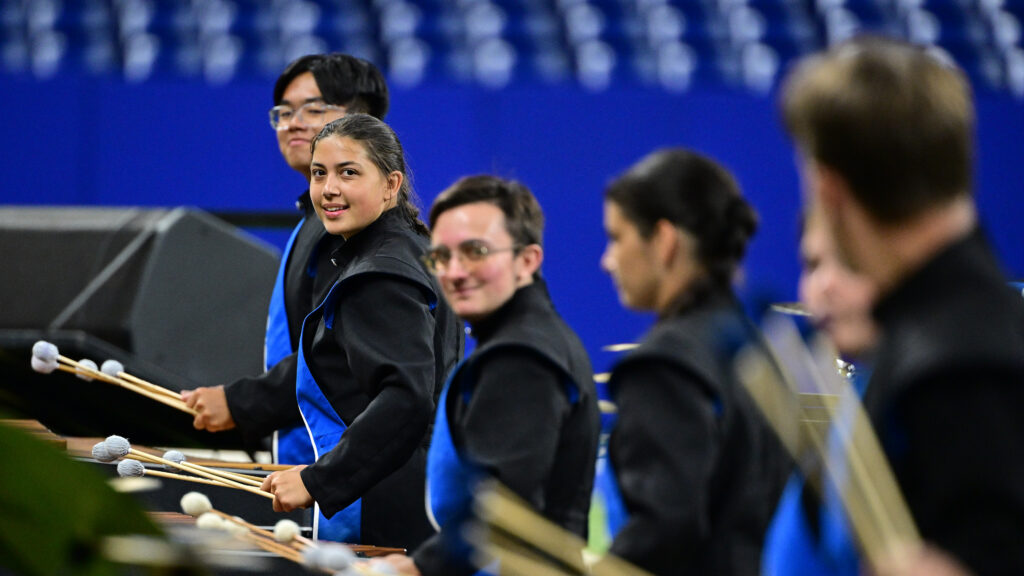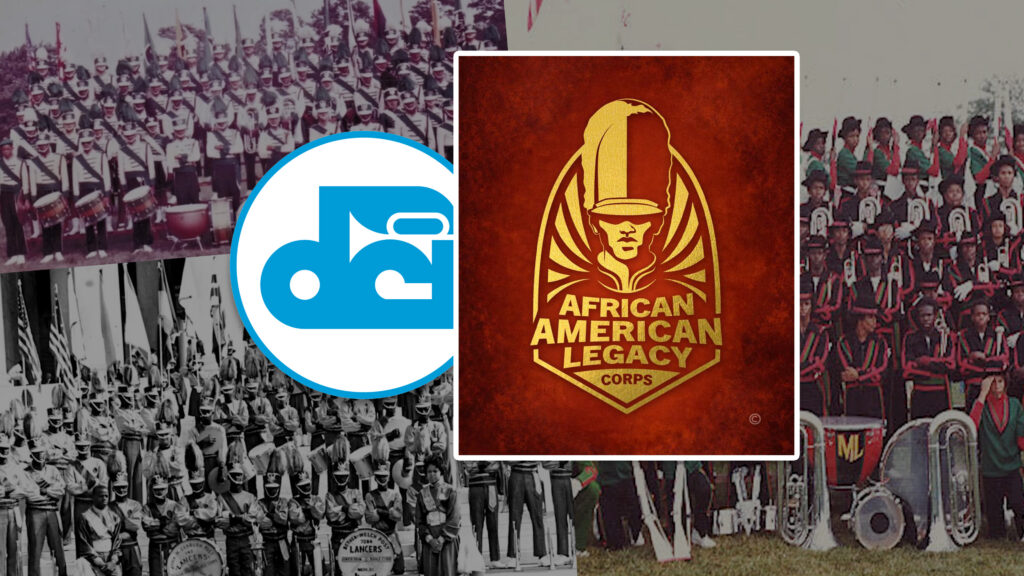The Drum Corps International World Championships returned to Foxboro, Massachusetts in 2005, more than a decade after the 1994 event was held in Foxboro Stadium.
Among the corps that didn’t advance into the Finals competition, Colts fought through a late-season equipment truck accident that wiped out many of the corps’ large and integral Americana postcard sets, passing up Crossmen from the Quarterfinals to place 13th.
The 14th-place Crossmen fell out of Finals for the first time since 1989. The 15th-place Capital Regiment moved a giant sundial throughout its production titled “Chiaroscuro,” followed by the 16th-place Southwind. Mandarins and Seattle Cascades remarkably tied for 17th in both Quarterfinals and Semifinals. Only the top-17 corps advanced into the Semifinals, so with the tie, 18 corps made the cut in 2005.

In 22nd place, Troopers finished under non-Semifinalists Pacific Crest, Esperanza, and the Magic.
The Wyoming corps’ production, “Gold Rush,” captured the character of 1848 through 1855, when reports of gold in “them thar hills” of California attracted prospectors from around the world, especially from America and southeast Asia.
The show opened with “Death by Triple Fiddle,” written in 1999 by famed classical concert violinist Joshua Bell, double bassist Edgar Meyer, bluegrass mandolinist/violinist Charles Bush, and mandolinist/guitarist Mike Marshall. It was performed by the four composers on the studio album “Short Trip Home.” The tune featured a fast-and-furious bluegrass breakdown and provided the corps with an energetic opening statement of just over a minute in length. Setting the show theme visually, color guard flags of bright yellow and orange appeared as sun against the deep blue of the ocean waves crossed by the immigrants.

Much of the rest of the show was based on various sections of “Gates of Gold,” written in 1994 for violin and orchestra by Joseph Curiale, an arranger/composer for “The Tonight Show Starring Johnny Carson” and the first hired staff writer for Columbia Pictures. The work is dedicated to the Chinese immigrants who came to America during the Gold Rush and stayed to help build America.
The first movement from the suite, titled, “A View from the Sea,” reflected on the hope and excitement experienced by the immigrants when they first spotted sight of America from their ship. Countering the raw Americana of the main melody was the pentatonic responses from the front ensemble keyboards.
The traditional folk song, “She’ll Be Comin’ Round the Mountain,” first appeared in 1927 in poet/biographer Carl Sandburg’s 1927 songbook, “The American Songbag.” It was derived from an earlier Christian spiritual named, “When the Chariot Comes,” and was adapted with new lyrics by railroad work gangs who labored to bridge America’s east and west.
The sound of railroad spikes being hammered into the rails and train whistles created by the horn line playing tone clusters opened the corps’ version of the classic song, based on Frank Macchia’s rendition from his 1991 album, “Frankie Maximum Goes Way-er Out West,” a compilation of whimsically humorous jazz renditions of classic cowboy and Americana songs. The carefree nature of the song captured the workers letting down their hair as they allowed themselves to temporarily kick back and enjoy the fruits of their labors.

Red flags contained the spokes of wagon wheels, those carriages put into obsolescence by the growing popularity of transcontinental trains that could now travel from one side of the country to the other, but which were still necessary to transport the workers to the sites of the Gold Rush.
Color guard rifles replicated the forward/backward motion of the driving (coupling) rods that connected the multiple wheels of a steam locomotive. Snare drummers playing with drum brushes re-created the “chugga-chugga” sound of the laboring steam engines as they plied the rails and climbed the California mountains, with the blowing of wooden train whistles heard from within the front ensemble.
Next came the second movement from the Curiale suite, “River of Tears,” a short, tender ballad based on a pentatonic scale that reflected the sorrow of the Asian immigrants when they ran into discrimination from others working the Gold Rush, in addition to them discovering the stress of the horrid working conditions and brutally long workdays needed to be faced in order to grab a piece of the American dream. Flags of two large blocks of a dark and azure blue were reminiscent of the color of the sky and the reflecting water of the creeks and rivers that the immigrants panned in hopes of finding gold.

The final section of the show was the third movement of the Curiale piece, “Call of the Mountain,” a heroically dramatic work conveying the sense of success of the “49ers,” highlighted by flags of gold that proclaimed the successful quest of those who came to America in search of riches.
Happy and euphoric, all the trevails of the immediate past were washed away like the gravel and soil gathered in the prospectors’ mining pans, leaving behind the glistening chunks of gold that made the journey from Asia worthwhile.
Troopers didn’t field a corps the following year of 2006, but bounced back in 2007 in 20th place, two positions higher than the corps finished in 2005. Shortly thereafter, in 2009, the corps placed in the DCI World Championships Finals for the first time since 1986.

Michael Boo was a member of the Cavaliers from 1975-1977. He wrote about the drum corps activity for more than 35 years while serving as a staff writer for various Drum Corps International projects. During his lifetime Boo wrote for numerous other publications including an honors-winning book on the history of figure skating. He also was an accomplished composer. Boo passed away in 2020 and was inducted into the DCI Hall of Fame posthumously in 2021.





